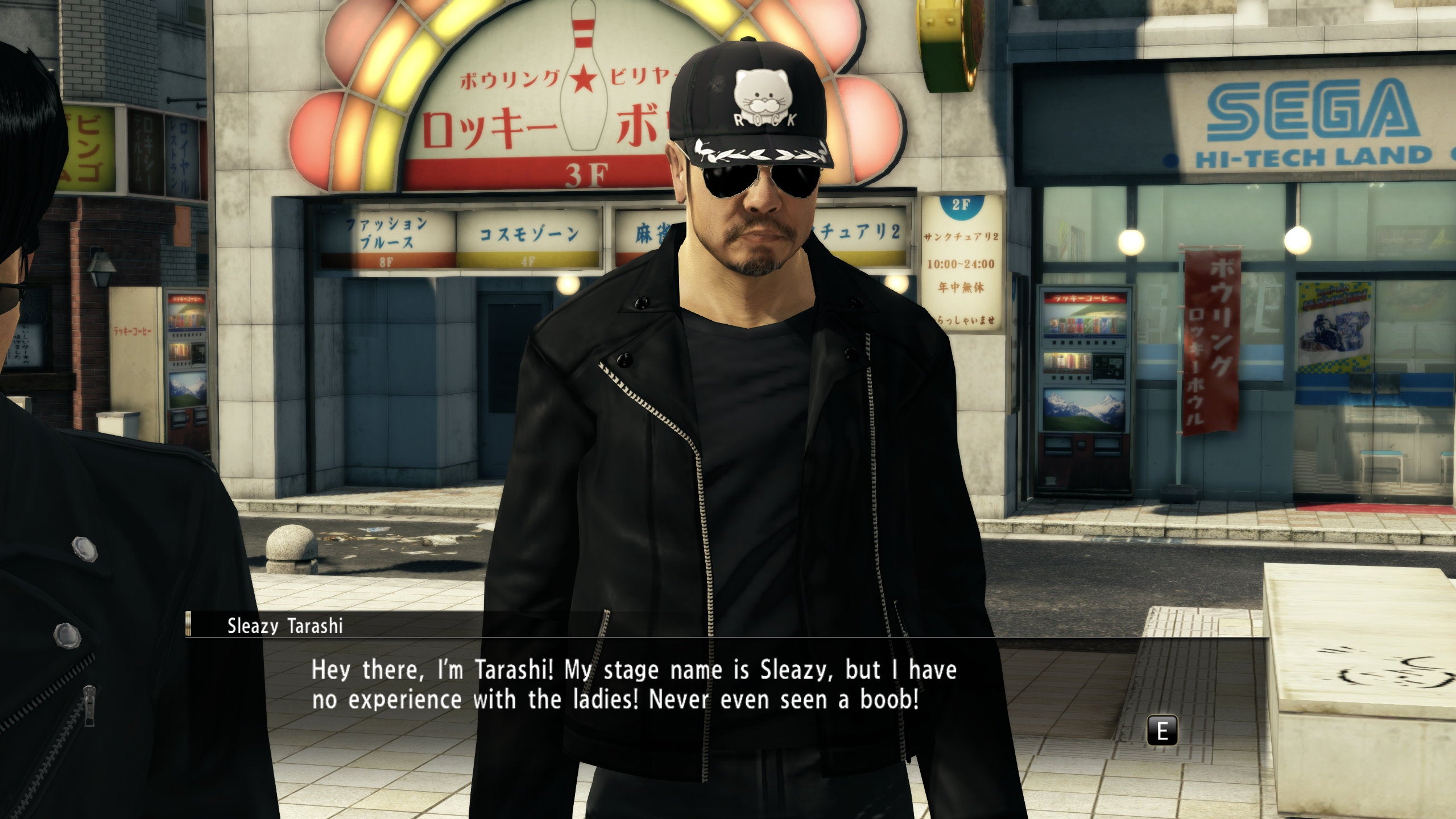Not everyone in Yakuza games is actually a stack of typewriters wearing a trenchcoat - although I wouldn’t be surprised if, in the next game, the patriarch of the Tojo Clan’s retainers fall out mid-smirk, only to reveal a row of keys that spell out “MUSCLE”. Anything, I repeat, anything is possible in these games. By and large, many important cutscenes, where patriarchs rip their suits off in one fluid motion, or when tigers are socked straight in the whiskers, or as Kiryu belts “baka mitai” down the karaoke parlour, are voiced. But many of the quirky characters you’ll bump into in the back alleys of Kamurocho aren’t voiced at all. (This is with the exception of Yakuza 6, where the typewriters were seemingly given a well-earned rest.) Of course, this isn’t new in games. I mean, just look at Pokémon, or JRPGs like Dragon Quest. Here, as for many people in Yakuza, text boxes convey what characters are feeling or thinking, as well as what they’re saying. I’ve spent some time with MMORPG Final Fantasy XIV recently, and so far I have been treated to two cutscenes where I have doggedly absorbed character information by scanning boxes with my eyes. The difference to Yakuza being that these boxes are vacuums and the text that fills them are curly sticks which materialise without a sound. In FFXIV I am “Shadow Hulk”, a grey titan who lives for a fight, but often it feels like I actually roleplay as a barcode scanner, someone whose eyes bleep after I’ve read a paragraph, while my character stands stock-still, eyes unmoving. In Yakuza, text doesn’t quietly slide onto boxes like a leaf falls on pavement. Instead, it confidently clacks onto screen. The magic is that each clack is pitched differently for whoever’s squaring up against you, or fleeing from you, or asking for your help. For a burly thug the words thunk onto screen, matching the forcefulness of the aggressor before you. Oh, this cute kid has dropped his wickle teddy bear? Their words will tip-tap far more gently, like the sound of someone thrumming a Pukka Pad with their fingers. This makes a huge difference, not only in holding my attention, but also in giving me a greater sense of the person before me. Even if I can’t hear their voice, these clacks, clicks, and thunks help form my sense of who they are. I often find my attention wavers when I’m forced to scan a block of silent text in a cutscene, because I read it in my own voice and with a sense of detachment. But the punch of Yakuza’s typewriters keeps me anchored to whoever I’m interacting with, because they imbue text with a sense of character. I find the evolution of the devices Yakuza uses to jazz up text fascinating as well. If you start with the first game, Yakuza Kiwami, then work your way up from there (eventually looping back around to the prequel, Yakuza 0), it’s night and day stuff. Despite being remade, the earlier games rely heavily on typewriters. But get closer to present day, i.e. Yakuza: Like A Dragon, and the typewriter is joined by other friends. A modern camera that loves a good zoom-in, or a shake, and a bluetooth speaker that plays a variety of jingles depending on the mood. You can see techniques like this elsewhere, and they don’t have to use sound, as evidenced by Katana Zero’s interrupt system, where you’re in control of the words scrolling across the screen. At any point, you can just cut a character off, but if you choose to hear them out, a new set of choices appear. Meanwhile, Necrobarista’s text is enlivened by different “shots”, as its script was written more like a play than anything else. I’d love to see more games making use of these kinds of ideas. With each new entry, Yakuza’s playfulness is gradually let loose as the grip softens. More fun is had with not only the text, but with the camera, and the music that accompanies these chance encounters. It’s amazing to me that many of the game’s funniest, or most emotional, scenes aren’t voiced at all, but are delivered through a series of clicks at different pitches, accompanied by a slow pan of the camera, the plonk of piano, or the bounce of cheesy music.

